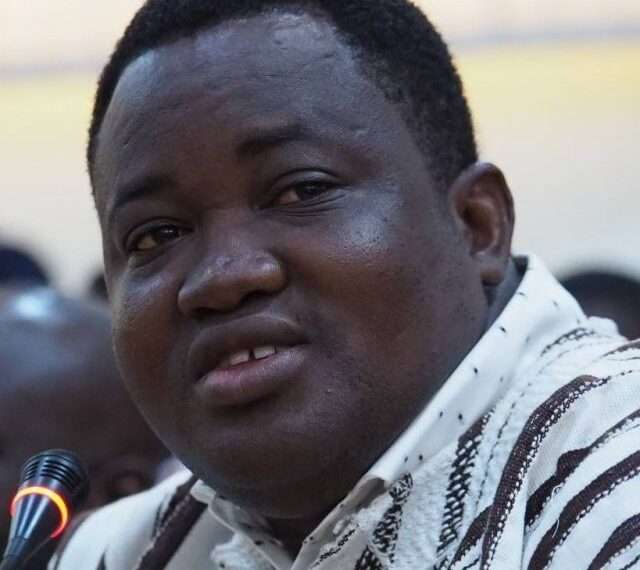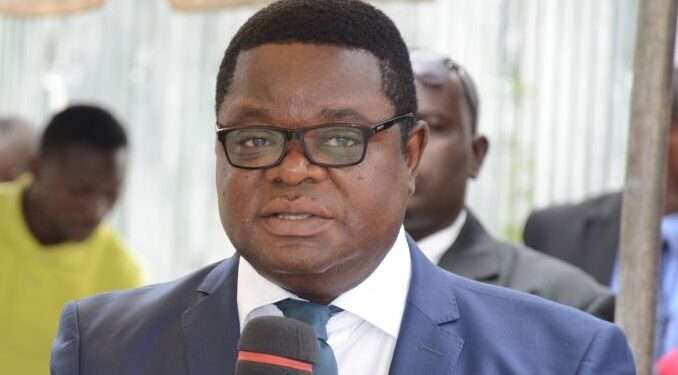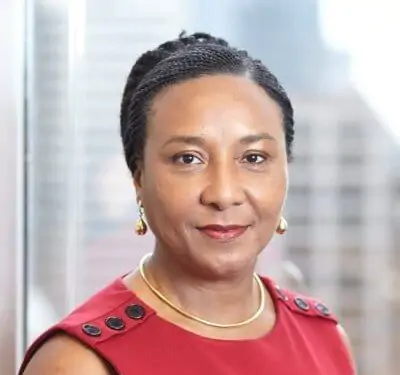Development Economist at the West Africa Centre for Development and Sustainable Rural Transformation, Professor Micheal Ayamga has raised concerns about the prevailing economic conditions in Ghana and the potential influence on voters’ decisions in the upcoming elections.
Prof. Ayamga’s insights shed light on the pressing issues shaping the political landscape, particularly around the economy, job creation, and food security. According to Prof. Ayamga, the mood across the country suggests that the economy will be the number one issue influencing voters in the upcoming elections.
Prof. Ayamga observed that, the public’s dissatisfaction with the current economic situation is palpable, especially in areas where food insecurity has become a critical concern.
“…Jobs, food insecurity, especially in the rural parts, and largely the inability of workers to put food on the table are at the forefront of the electorate’s concerns.”
Professor Micheal Ayamga Dev. Economist, WAC-SRT
This sentiment is largely driven by the erosion of income caused by the instability of the cedi and Ghana’s heavy reliance on imported goods, which have become more expensive due to currency fluctuations.
Income Erosion and Imported Goods
Prof. Ayamga emphasized that income erosion has been a significant issue for many Ghanaians. Prof. Ayamga attributed this to the country’s dependence on imported goods which has made it difficult for the average worker to maintain their standard of living. The depreciation of the cedi has resulted in higher prices for imported goods, further exacerbating the economic challenges faced by the population.
“There has been very significant income erosion, largely due to the instability of the cedi and our taste for imported goods and food.”
Professor Micheal Ayamga Dev. Economist, WAC-SRT
This has created a scenario where many Ghanaians are struggling to make ends meet, and they expect the next government to prioritize addressing these bread-and-butter issues.
The issue of job creation is also a major concern, particularly among the youth. Prof. Ayamga noted that young people are increasingly worried about their prospects for long-term employment. While some have benefitted from temporary employment programs such as the Youth Employment Program, these initiatives have not provided the sustainable jobs that the youth are seeking.
“If you ask young people, they are particularly worried about getting more sustainable jobs.”
Professor Micheal Ayamga Dev. Economist, WAC-SRT
Prof. Ayamga further explained that many youth employment programs have been short-lived, leaving participants without long-term security once the programs expire. This has led to a growing demand for jobs that offer not only sustainability but also better remuneration.
“Even those who have been fortunate enough to have been onboarded in the youth employment program, and other [initiatives]. They are thinking that job creation must be of a long-term nature and must be sustainable.”
Professor Micheal Ayamga Dev. Economist, WAC-SRT
Prof. Ayamga criticized the tendency to describe subsistence-level opportunities as jobs, arguing that this approach does not promote upward social mobility for the youth.
A Cry for Change
Prof. Ayamga believes that the public’s desire for change is evident. While it is uncertain whether this desire for change will manifest in a shift in leadership or a change in governance style, it is clear that the electorate is dissatisfied with the status quo. Prof. Ayamga observed that many Ghanaians feel that the current state of the country is not desirable and that they are looking for leadership that can address their concerns about the economy, job creation, and food security.
“The mood is gradually indicative of one that is high dissatisfaction with the status quo. People think that the current state of the country is not desirable, and people want change.”
Professor Micheal Ayamga Dev. Economist, WAC-SRT
This sentiment, Prof. Ayamga explained has the potency to influence the outcome of the upcoming elections as voters weigh their options and decide whether they want a change in leadership or a change in the style of governance.
The Path Forward: Bread-and-Butter Issues
Prof. Ayamga called for a focus on boosting domestic production to ensure food security and address the economic challenges that have eroded incomes and left many Ghanaians struggling.
“People are looking for a government that will take job creation more seriously, take income erosion more seriously, and focus on boosting domestic production so that at least food security can be guaranteed.”
Professor Micheal Ayamga Dev. Economist, WAC-SRT
The upcoming elections, according to Prof. Ayamga will likely be shaped by these economic concerns, as voters look for leadership that can provide real solutions to the issues affecting their daily lives.
READ ALSO; Ghana’s Development Challenges: Analyzing Work Habits and Economic Growth





















